
Arezzo: The Hidden Jewel of Tuscany
Arezzo, a charming city in the heart of Tuscany, offers a unique blend of history, culture, and breathtaking landscapes. Known for its medieval architecture and vibrant arts scene, Arezzo is an ideal destination for those seeking an authentic Italian experience away from the crowded tourist hotspots. Arezzo's rich history is evident in every corner of the city. The Piazza Grande, the city's main square, is a perfect starting point for exploring its historic center. Here, you can admire the stunning Vasari Loggia and the beautiful Santa Maria della Pieve church. The square also hosts the famous Giostra del Saracino, a medieval jousting tournament that takes place twice a year. Art lovers will be delighted by the frescoes of Piero della Francesca in the Basilica of San Francesco. Another must-see is the Casa Vasari, the former home of the renowned artist Giorgio Vasari, which is now a museum showcasing his works. Arezzo also boasts numerous antique shops and markets, making it a paradise for collectors and history enthusiasts. Foodies will appreciate the city's culinary delights, from its traditional Tuscan cuisine to its fine wines. Be sure to try the local specialties, such as ribollita, a hearty vegetable soup, and the famous Chianina beef. Arezzo's restaurants and trattorias offer an authentic taste of Tuscany, often accompanied by a glass of robust Chianti wine. Arezzo is not only about history and art; the surrounding countryside offers picturesque landscapes perfect for hiking and cycling. The city is also a great base for exploring other Tuscan gems, such as Florence, Siena, and Cortona, all within easy reach by train or car.
Local tips in Arezzo
- Visit the Piazza Grande during the Giostra del Saracino for a unique medieval experience.
- Book tickets in advance for the Basilica of San Francesco to avoid long lines.
- Explore the local antique market, held on the first Sunday of each month, for unique finds.
- Take a day trip to nearby Tuscan cities like Florence and Siena, easily accessible by train.
- Try local dishes such as ribollita and Chianina beef for an authentic Tuscan culinary experience.
Arezzo: The Hidden Jewel of Tuscany
Arezzo, a charming city in the heart of Tuscany, offers a unique blend of history, culture, and breathtaking landscapes. Known for its medieval architecture and vibrant arts scene, Arezzo is an ideal destination for those seeking an authentic Italian experience away from the crowded tourist hotspots. Arezzo's rich history is evident in every corner of the city. The Piazza Grande, the city's main square, is a perfect starting point for exploring its historic center. Here, you can admire the stunning Vasari Loggia and the beautiful Santa Maria della Pieve church. The square also hosts the famous Giostra del Saracino, a medieval jousting tournament that takes place twice a year. Art lovers will be delighted by the frescoes of Piero della Francesca in the Basilica of San Francesco. Another must-see is the Casa Vasari, the former home of the renowned artist Giorgio Vasari, which is now a museum showcasing his works. Arezzo also boasts numerous antique shops and markets, making it a paradise for collectors and history enthusiasts. Foodies will appreciate the city's culinary delights, from its traditional Tuscan cuisine to its fine wines. Be sure to try the local specialties, such as ribollita, a hearty vegetable soup, and the famous Chianina beef. Arezzo's restaurants and trattorias offer an authentic taste of Tuscany, often accompanied by a glass of robust Chianti wine. Arezzo is not only about history and art; the surrounding countryside offers picturesque landscapes perfect for hiking and cycling. The city is also a great base for exploring other Tuscan gems, such as Florence, Siena, and Cortona, all within easy reach by train or car.
When is the best time to go to Arezzo?
Iconic landmarks you can’t miss
Arezzo Cathedral
Explore Arezzo Cathedral, a stunning Gothic masterpiece filled with art, history, and spirituality in the heart of Tuscany's enchanting landscapes.
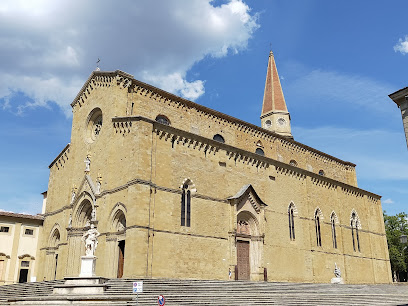
Basilica di San Francesco
Explore the captivating Basilica di San Francesco in Arezzo, a stunning Gothic church filled with rich history, exquisite art, and serene beauty in the heart of Tuscany.
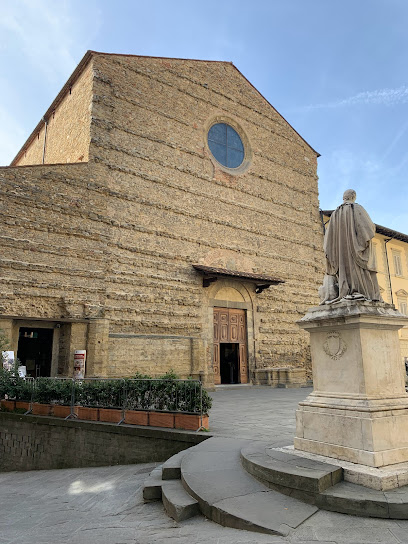
Arezzo Fiere e Congressi S.r.l
Explore Arezzo Fiere e Congressi, a premier convention center blending modern facilities with the rich cultural heritage of Arezzo, Italy.
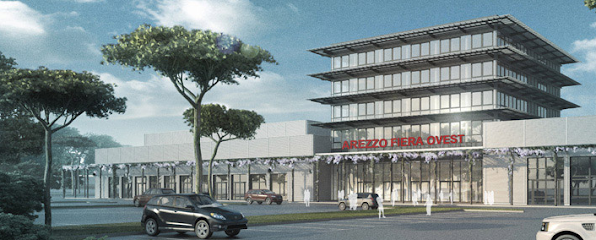
the Medici Fortress Park
Explore the serene Medici Fortress Park in Arezzo, a perfect blend of nature and history, ideal for relaxation and scenic views.
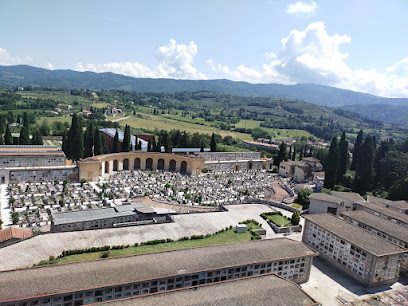
Casa Vasari
Explore the artistic legacy of Giorgio Vasari at Casa Vasari, a museum in Arezzo that showcases Renaissance art and history.
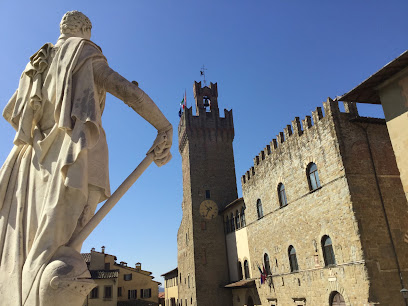
Santa Maria della Pieve
Discover the stunning architecture and rich history of Santa Maria della Pieve, a must-visit Catholic church in Arezzo, Italy, showcasing artistic heritage.
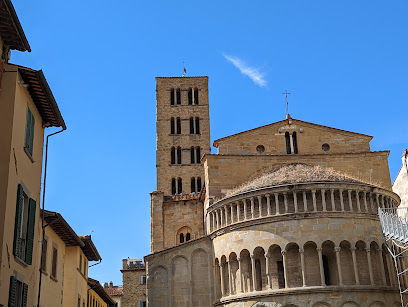
Fortezza Medicea
Explore the majestic Fortezza Medicea in Arezzo, a stunning fortress and park that showcases Italy's rich Renaissance history and breathtaking landscapes.
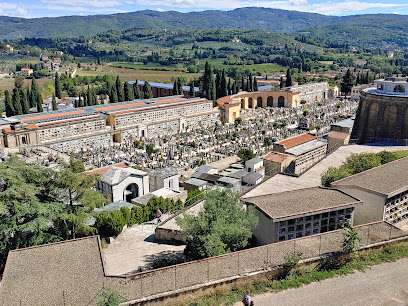
San Domenico
Explore the majestic San Domenico in Arezzo, a stunning basilica rich in history, art, and spiritual significance, surrounded by breathtaking views.
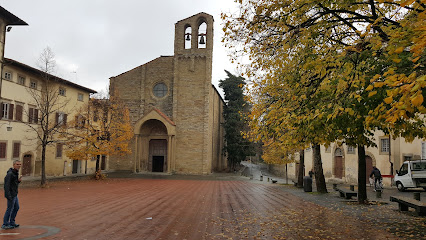
Torre del Cassero
Discover the enchanting Torre del Cassero in Castiglion Fiorentino, a historical landmark offering breathtaking views and a glimpse into Tuscany's rich past.
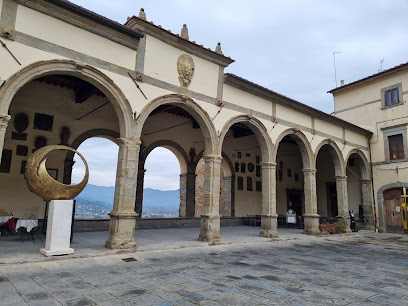
Ponte Buriano
Explore the enchanting Ponte Buriano, a historical bridge in Tuscany, offering stunning views and a glimpse into Italy's rich architectural heritage.
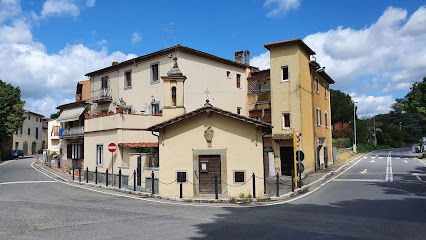
Porta San Lorentino
Discover the historical significance and architectural beauty of Porta San Lorentino in Arezzo, Italy - a must-see for every traveler.
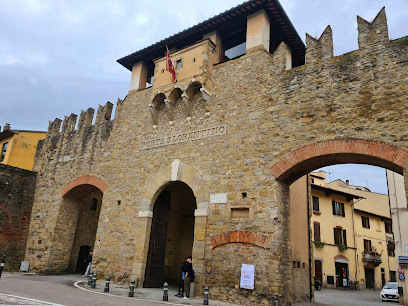
Roman Amphitheatre of Arezzo
Explore the magnificent Roman Amphitheatre of Arezzo, an ancient marvel showcasing the grandeur of Roman civilization amidst Tuscany's scenic beauty.
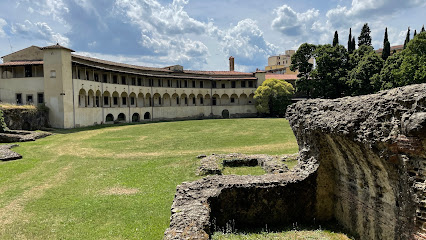
Gāius Cilnius Mæcēnās National Archæological Museum
Discover the Gāius Cilnius Mācēnās National Archæological Museum in Arezzo, a captivating journey through Italy's rich ancient history and culture.
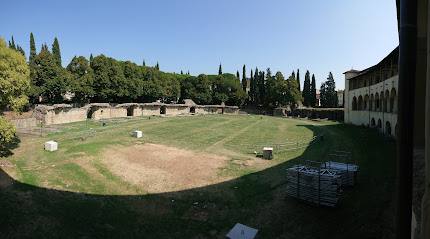
National Museum of Medieval and Modern Art
Discover the artistic legacy of Arezzo at the National Museum of Medieval and Modern Art, a treasure trove of cultural history and creative expression.
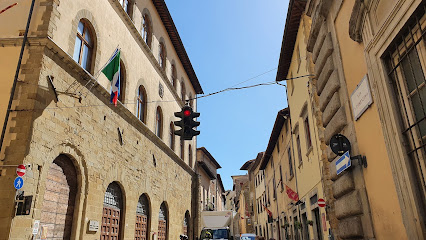
Antique Fair Arezzo
Discover the Antique Fair Arezzo, a monthly market brimming with vintage treasures, historical artifacts, and local charm in the heart of Tuscany.
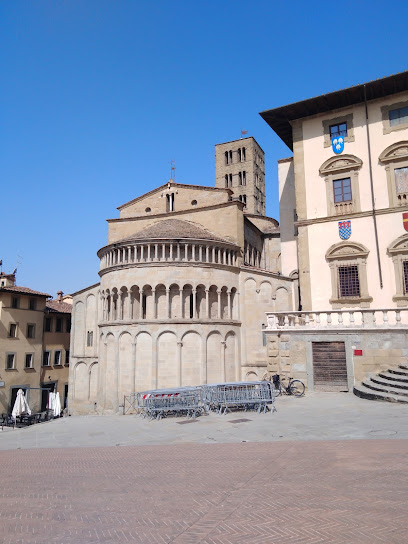
Unmissable attractions to see
Piazza del Campo
Experience the enchanting ambiance of Piazza del Campo, a UNESCO World Heritage site in Siena, Italy, known for its stunning architecture and vibrant cultural events.
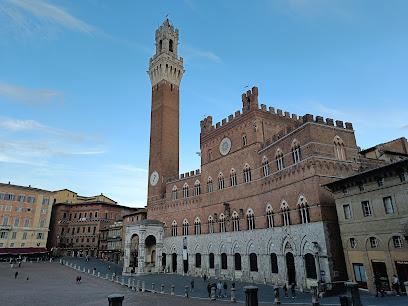
Siena Cathedral
Discover the stunning Siena Cathedral, a gothic masterpiece showcasing exquisite art and architecture in the heart of Tuscany, Italy.
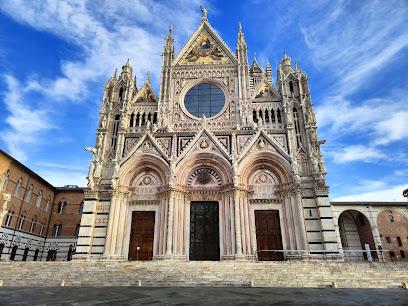
Fortezza Medicea
Explore the historical grandeur of Fortezza Medicea, a stunning fortress in Siena offering breathtaking views and a glimpse into Tuscany's rich past.
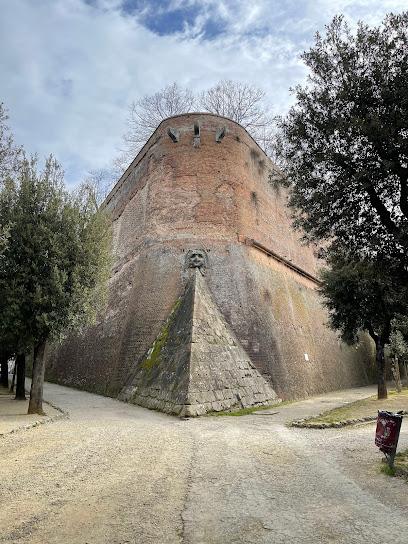
Terme San Giovanni
Immerse yourself in the healing waters and luxurious treatments at Terme San Giovanni, a premier wellness destination in the heart of Tuscany.
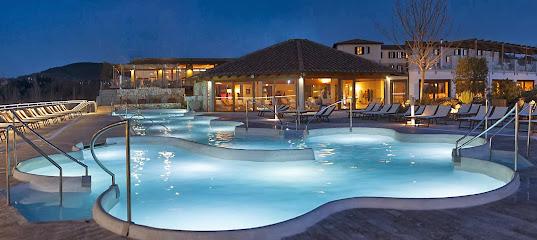
Ròseo Euroterme Wellness Resort
Discover tranquility at Ròseo Euroterme Wellness Resort in Bagno di Romagna, a haven of thermal baths and wellness treatments for the ultimate relaxation experience.
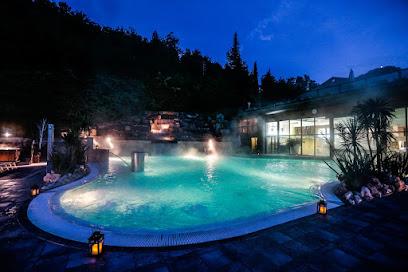
Abbazia di Monte Oliveto Maggiore
Explore the historic Abbazia di Monte Oliveto Maggiore, a serene monastery in Tuscany known for stunning frescoes and breathtaking landscapes.
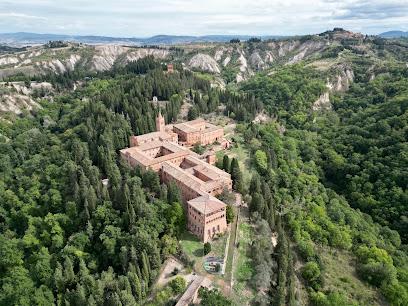
Basilica Cateriniana San Domenico
Discover the stunning Basilica Cateriniana San Domenico, a historic church in Siena, showcasing Gothic architecture and rich religious history.
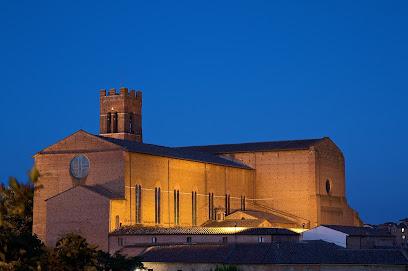
Chapel Vitaleta
Discover the serene beauty of Chapel Vitaleta, a charming Tuscan chapel surrounded by breathtaking landscapes and rich history in the heart of Italy.
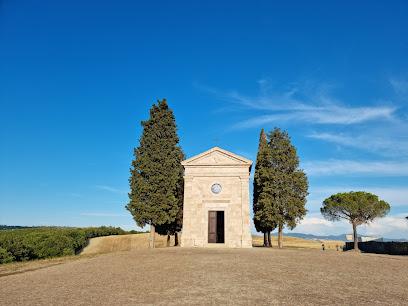
Arezzo Cathedral
Explore Arezzo Cathedral - A beautiful blend of Gothic and Renaissance architecture in the heart of Tuscany, rich in history and art.
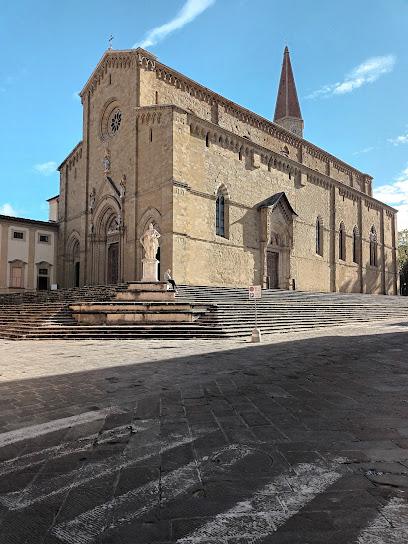
Porta Camollia
Explore the historical grandeur of Porta Camollia, a gateway to the enchanting medieval city of Siena, rich in culture and architectural beauty.
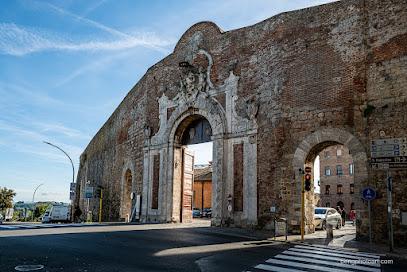
Basilica di San Francesco
Explore the artistic and architectural splendor of Basilica di San Francesco in Arezzo, a historic gem showcasing medieval brilliance and serene beauty.
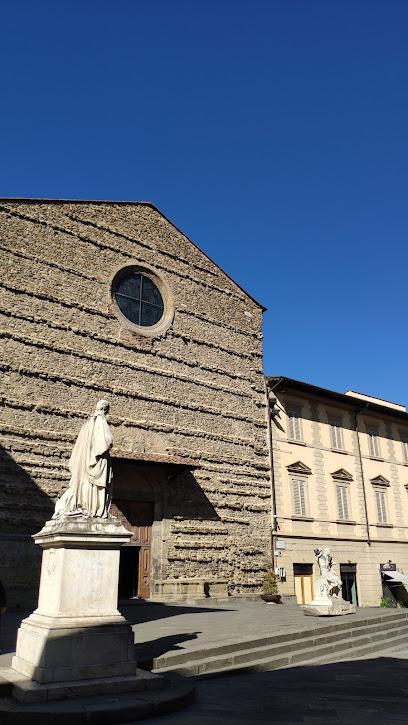
Castello di Brolio
Explore the historic Castello di Brolio, a stunning castle and winery in the heart of Chianti, where breathtaking views and exquisite wines await.

Palazzo Salimbeni
Explore the stunning Gothic architecture and rich history of Palazzo Salimbeni, a must-see historical landmark in Siena, Italy.
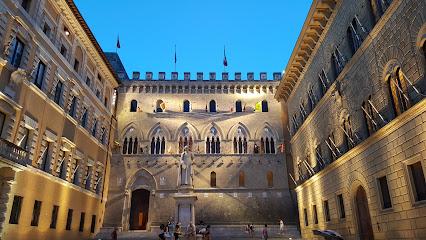
Hermitage Le Celle
Experience the serene beauty and spiritual heritage of Hermitage Le Celle, a historic monastery nestled in the heart of Tuscany's breathtaking landscape.
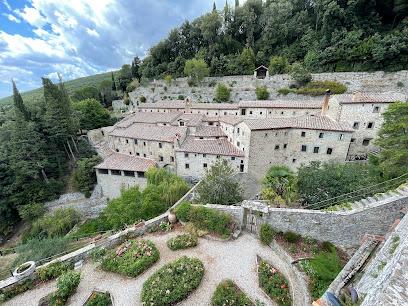
Sanctuary of the Madonna di San Biagio
Discover the tranquil beauty and spiritual significance of the Sanctuary of the Madonna di San Biagio in the heart of Tuscany, Italy.
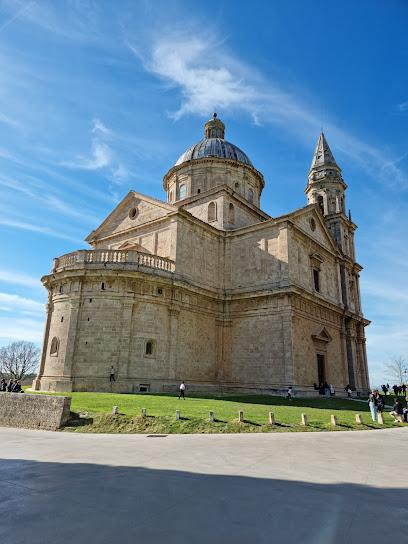
Essential places to dine
Antica Osteria l'Agania
Experience authentic Tuscan flavors at Antica Osteria l'Agania – where every dish tells a story.
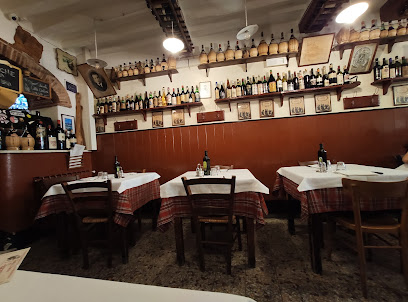
Trattoria Il Saraceno
Experience authentic Italian cuisine at Trattoria Il Saraceno in Arezzo—where tradition meets taste in every dish.
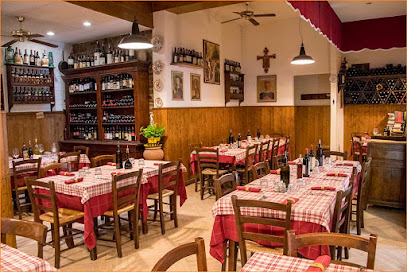
Antica Fonte
Discover authentic Tuscan flavors at Antica Fonte - where tradition meets culinary excellence in Arezzo.
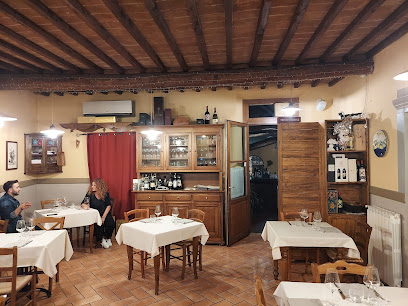
Trattoria Cavour 42
Discover authentic Tuscan flavors at Trattoria Cavour 42 in Arezzo - where tradition meets taste in every dish.
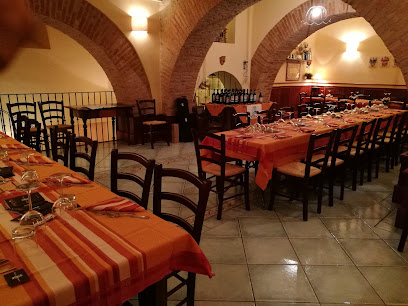
Il Cantuccio
Experience authentic Tuscan cuisine at Il Cantuccio in Arezzo - where every dish tells a story of tradition and flavor.
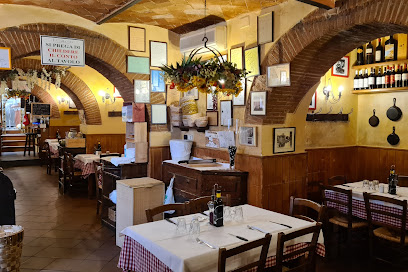
Osteria dei Mercanti
Discover authentic Tuscan flavors at Osteria dei Mercanti in Arezzo - where tradition meets taste in every dish.
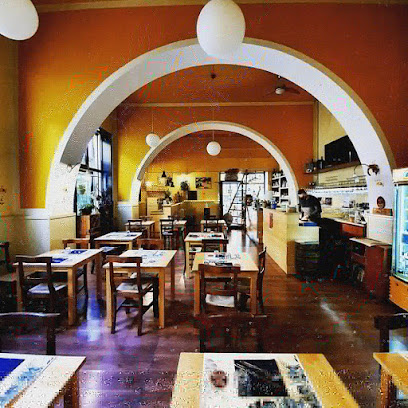
Teorema del Gusto
Discover authentic Italian cuisine at Teorema del Gusto in Arezzo—where traditional flavors meet cozy ambiance.
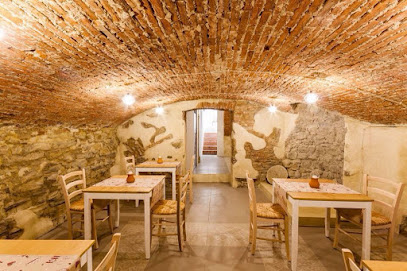
Porcavacca
Experience authentic Italian flavors at Porcavacca in Arezzo - where exquisite meat dishes meet local culinary traditions.
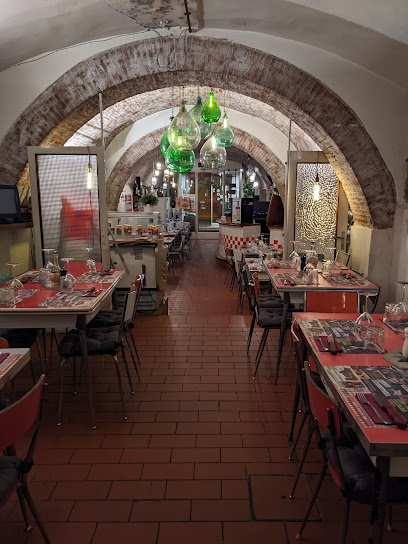
Vineria Dal Chiodo
Experience authentic Tuscan flavors at Vineria Dal Chiodo in Arezzo - where tradition meets taste.
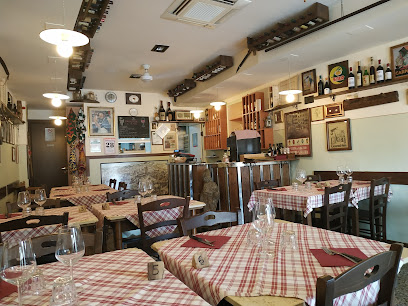
Il Covo dei Briganti
Discover authentic Tuscan cuisine at Il Covo dei Briganti in Arezzo—where tradition meets taste in every dish.
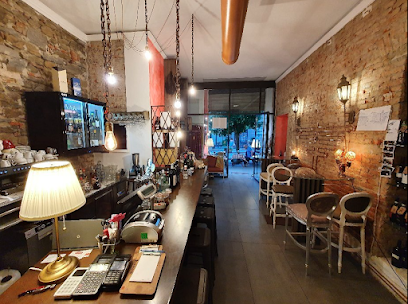
Trattoria La Vigna
Savor the flavors of Italy at Trattoria La Vigna - where every dish tells a story of Tuscan tradition and passion.
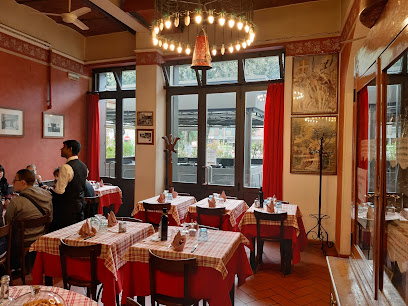
Osteria I Bottega
Experience authentic Tuscan cuisine at Osteria I Bottega - where tradition meets flavor in every dish.
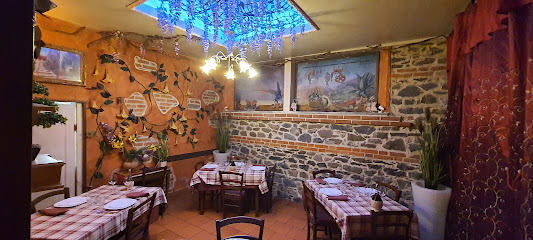
Ristorante La Lancia D'Oro Arezzo
Discover the essence of Tuscan cuisine at Ristorante La Lancia D'Oro, where tradition meets elegance in the heart of Arezzo.
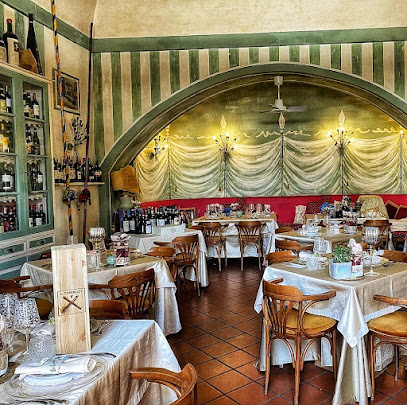
Osteria Da Giovanna
Savor authentic Tuscan flavors at Osteria Da Giovanna in Arezzo - where tradition meets culinary excellence.
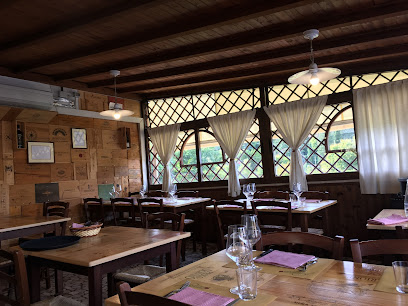
Ristorante Logge Vasari
Experience authentic Italian cuisine at Ristorante Logge Vasari in Arezzo's historic Piazza Grande.
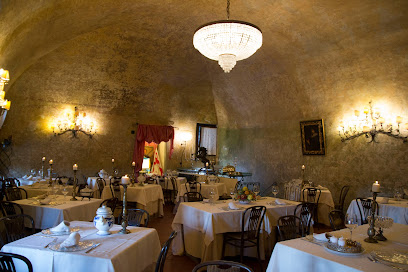
Markets, malls and hidden boutiques
CENTRO*Arezzo
Discover the ultimate shopping experience at CENTRO*Arezzo, offering diverse stores, delightful dining, and a vibrant atmosphere in Arezzo, Italy.
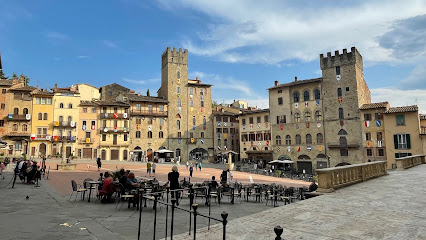
Al Magnifico
Discover Al Magnifico, Arezzo's premier shopping mall, featuring diverse stores, delightful dining, and entertainment to enhance your Italian adventure.
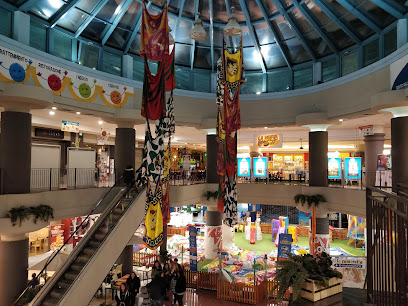
Flying Tiger Copenhagen
Explore Flying Tiger Copenhagen in Arezzo for unique gifts and home goods that capture the spirit of your travels in Italy.
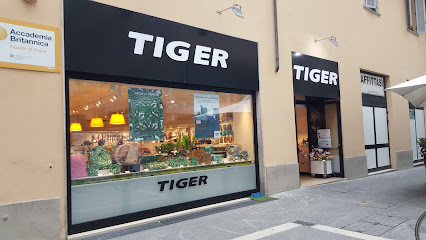
Sugar
Explore Sugar in Arezzo for a unique blend of local and international fashion, perfect for stylish travelers seeking a taste of Tuscany.
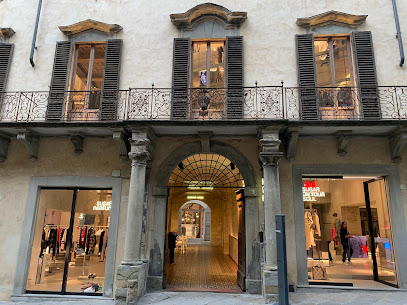
Stradivarius
Explore the latest women's fashion at Stradivarius in Arezzo, a stylish haven for trendy clothing and accessories.
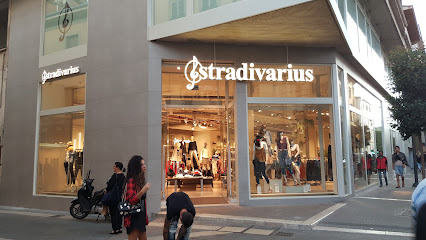
Tezenis
Explore Tezenis in Arezzo for stylish lingerie and dress options that blend elegance and affordability, perfect for every occasion.
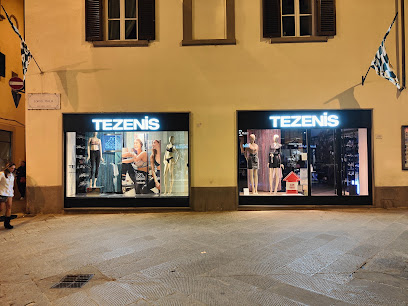
Subdued
Discover the latest trends at Subdued, Arezzo's premier destination for women's and youth fashion, where style meets affordability.
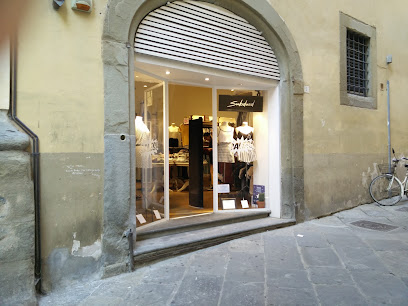
La Bottega del Cuoio
Explore La Bottega del Cuoio, Arezzo's premier destination for exquisite leather craftsmanship and unique Italian accessories.
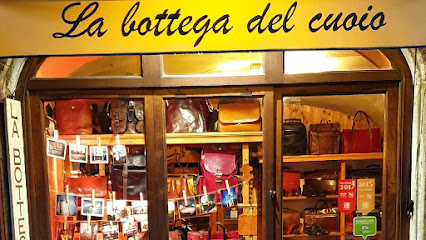
L'Albero
Discover exquisite footwear at L'Albero, a charming shoe store in Arezzo, where style meets comfort and quality.
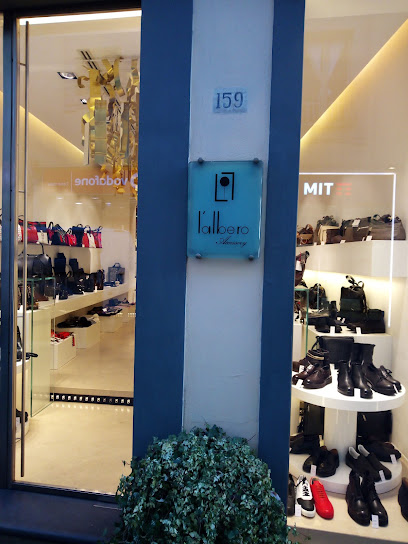
Luisa Spagnoli
Discover exquisite women's fashion at Luisa Spagnoli in Arezzo, where Italian elegance meets contemporary style in a luxurious boutique setting.
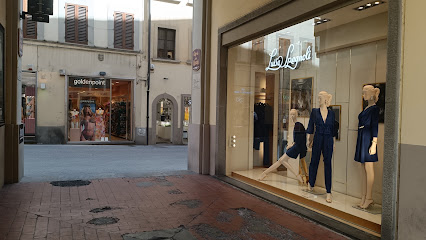
DADA Vintage
Discover unique vintage fashion at DADA Vintage in Arezzo, where every piece tells a story and sustainable style reigns supreme.
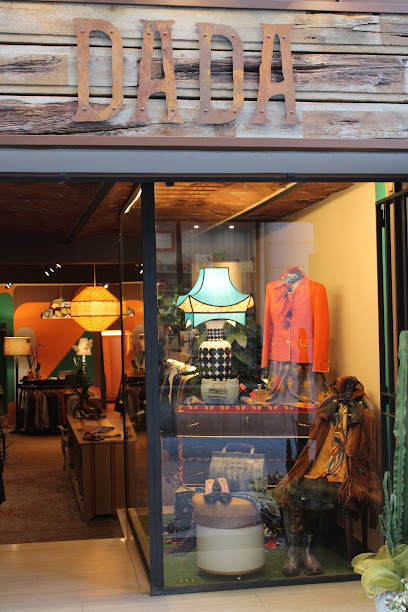
Arezzo
Explore Arezzo, a Tuscan gem offering a unique shopping experience in stunning fashion boutiques and rich historical sites.
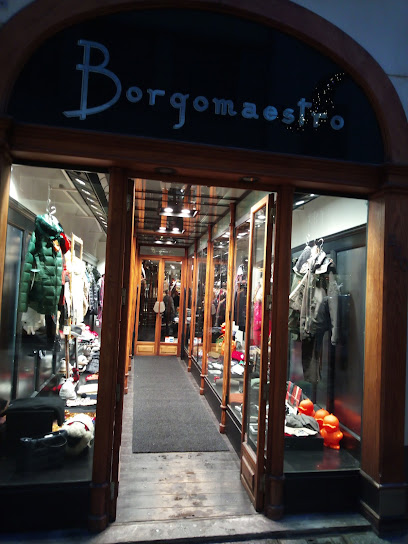
Ultimo
Explore Ultimo in Arezzo for exquisite clothing that blends Italian fashion with local craftsmanship, a must-visit for every fashion lover.
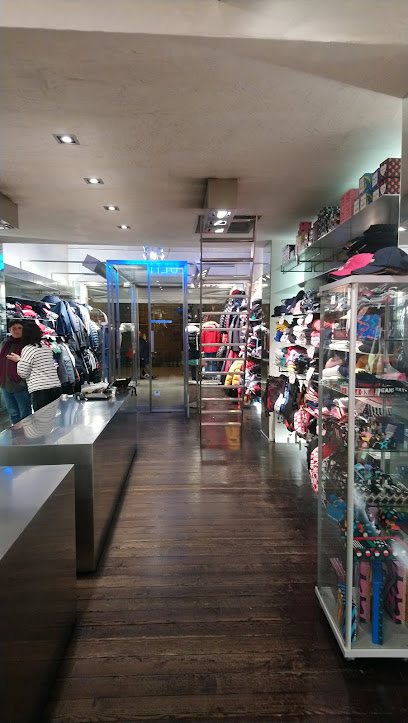
Prestige Boutique
Explore Prestige Boutique in Arezzo for the latest in men's and women's fashion, offering a unique selection of clothing and footwear in a stylish setting.
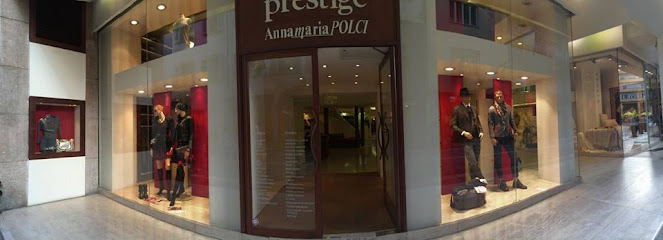
WOW! Vintage Shop
Explore unique vintage clothing and accessories at WOW! Vintage Shop, a delightful treasure in Arezzo that tells the story of fashion through the ages.
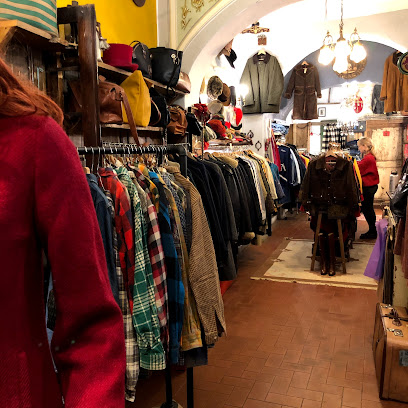
Essential bars & hidden hideouts
Bar Cristallo
Experience the best of Italian bar culture at Bar Cristallo in Arezzo, where local flavors meet a cozy atmosphere.
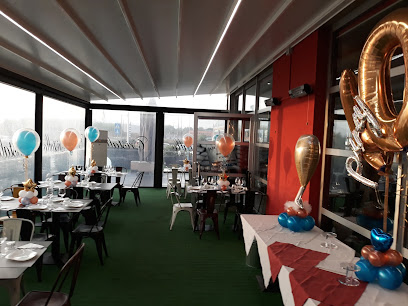
Jungle In Town
Discover Jungle In Town in Arezzo, a vibrant gastropub offering craft beers and gourmet dishes in a unique jungle-themed setting.
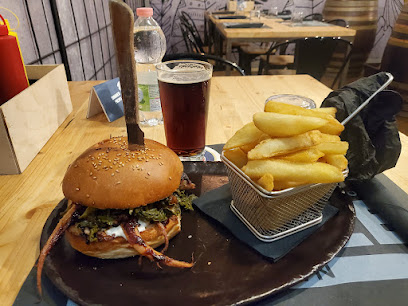
Bar Stefano - Gli svizzeri
Discover the heart of Arezzo at Bar Stefano - a charming café and bar serving delightful Italian brews and pastries in a welcoming atmosphere.
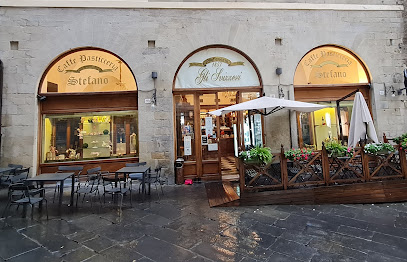
The Bar Giotto srl
Experience the essence of Italian café culture at Bar Giotto in Arezzo, where delicious coffee and a vibrant atmosphere await.
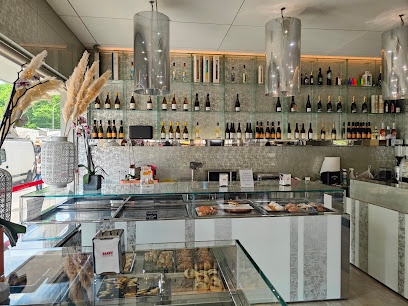
La Clandestina
Discover the vibrant flavors of Mexico at La Clandestina in Arezzo, where delicious tapas and creative cocktails await you.
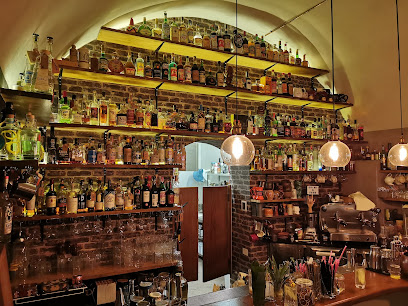
Da Quelle Citte Street Bar
Experience the vibrant Italian bar culture at Da Quelle Citte Street Bar in Arezzo, where delightful drinks and a charming atmosphere await.
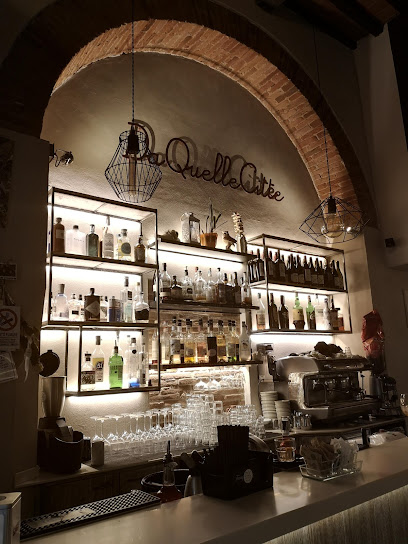
Liquid Bar
Discover Liquid Bar in Arezzo: a vibrant and cozy bar offering delightful drinks and a lively atmosphere for tourists and locals alike.
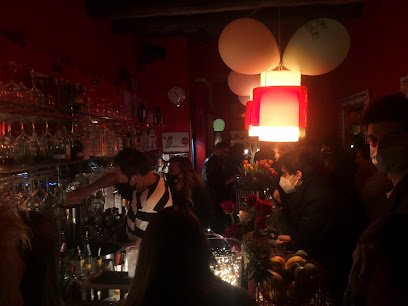
Urban Green
Experience Arezzo's nightlife at Urban Green, a vibrant bar and cocktail lounge offering a perfect blend of relaxation and excitement.
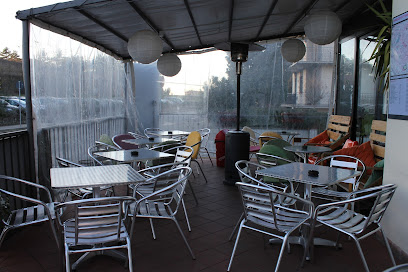
Bar Il Duomo
Experience authentic Italian café culture at Bar Il Duomo in Arezzo, where rich coffee and delectable pastries await in a charming setting.
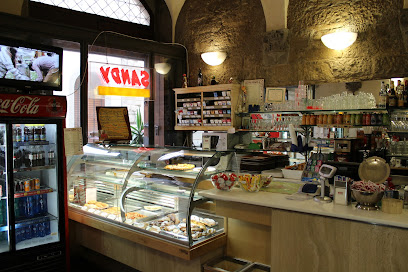
Inside
Discover the warm ambiance and local flavors at Inside, a must-visit pub in Arezzo, perfect for unwinding after a day of exploration.
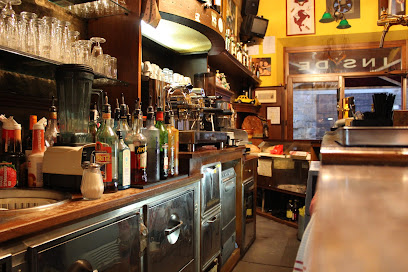
SOTTOPIAZZA
Discover Sottopiazza, Arezzo's lively beer hall and cocktail bar offering a unique blend of local brews, creative cocktails, and a welcoming atmosphere.
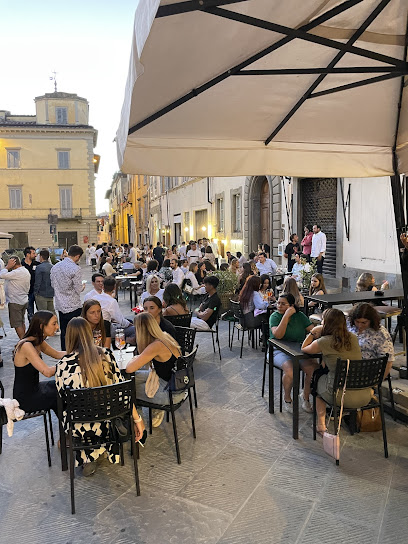
Bar Gambrinus Arezzo
Experience authentic Italian café culture at Bar Gambrinus in Arezzo, where delightful drinks and a warm atmosphere await every visitor.
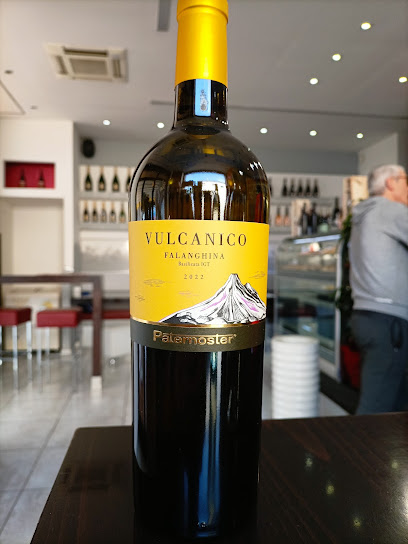
Bar Centrale 1973
Discover Bar Centrale 1973 in Arezzo, where delightful small plates and a cozy atmosphere await every visitor looking for a unique dining experience.
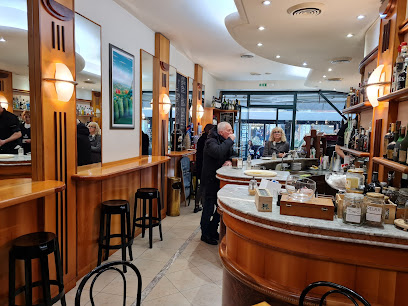
Divò Cocktail Bar RistoClub
Discover the vibrant atmosphere of Divò Cocktail Bar RistoClub in Arezzo, where innovative cocktails meet delectable dining in an enchanting setting.
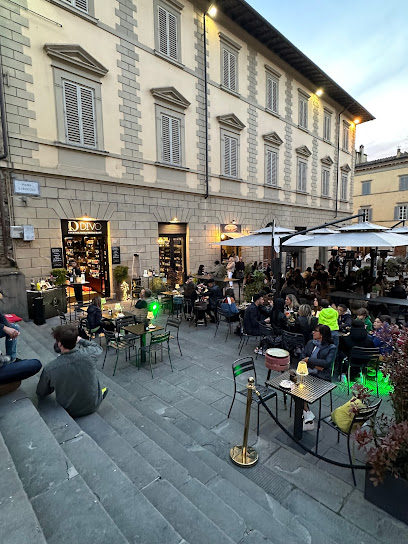
Travel experiences inspired by this city
Explore more travel diariesLocal Phrases
-
- HelloCiao
[chow] - GoodbyeArrivederci
[ar-ree-veh-dehr-chee] - YesSì
[see] - NoNo
[noh] - Please/You're welcomePer favore/Prego
[pehr fah-voh-reh/preh-goh] - Thank youGrazie
[graht-zee-eh] - Excuse me/SorryScusi/Mi dispiace
[scoo-zee/mee dee-spyah-cheh] - How are you?Come stai?
[koh-meh stah-ee] - Fine. And you?Bene. E tu?
[beh-neh/ay too] - Do you speak English?Parli inglese?
[par-lee een-gleh-zeh] - I don't understandNon capisco
[nohn kah-pee-skoh]
- HelloCiao
-
- I'd like to see the menu, pleaseVorrei vedere il menù, per favore
[vohr-ray veh-deh-reh eel meh-noo, pehr fah-voh-reh] - I don't eat meatNon mangio carne
[nohn mahn-joh kahr-neh] - Cheers!Salute!
[sah-loo-teh] - I would like to pay, pleaseVorrei pagare, per favore
[vohr-ray pah-gah-reh, pehr fah-voh-reh]
- I'd like to see the menu, pleaseVorrei vedere il menù, per favore
-
- Help!Aiuto!
[ah-yoo-toh] - Go away!Vai via!
[vah-ee vee-ah] - Call the Police!Chiama la polizia!
[kyah-mah lah poh-lee-tsya] - Call a doctor!Chiama un dottore!
[kyah-mah oon doht-toh-reh] - I'm lostMi sono perso
[mee soh-noh pehr-soh] - I'm illSto male
[stoh mah-leh]
- Help!Aiuto!
-
- I'd like to buy...Vorrei comprare...
[vohr-ray kohm-prah-reh] - I'm just lookingSto solo guardando
[stoh soh-loh gwar-dahn-doh] - How much is it?Quanto costa?
[kwahn-toh koh-stah] - That's too expensiveÈ troppo caro
[eh troh-poh kah-roh] - Can you lower the price?Puoi abbassare il prezzo?
[pwah-ee ahb-bahs-sah-reh eel preh-tsoh]
- I'd like to buy...Vorrei comprare...
-
- What time is it?Che ora è?
[keh oh-rah eh] - It's one o'clockÈ l'una
[eh loo-nah] - Half past (10)Sono le dieci e mezzo
[soh-noh leh dee-eh-chee eh meh-tsoh] - MorningMattina
[maht-tee-nah] - AfternoonPomeriggio
[poh-meh-ree-joh] - EveningSera
[seh-rah] - YesterdayIeri
[yeh-ree] - TodayOggi
[oh-jee] - TomorrowDomani
[doh-mah-nee] - 1Uno
[oo-noh] - 2Due
[doo-eh] - 3Tre
[treh] - 4Quattro
[kwah-troh] - 5Cinque
[cheen-kweh] - 6Sei
[say] - 7Sette
[seht-teh] - 8Otto
[oh-toh] - 9Nove
[noh-veh] - 10Dieci
[dee-eh-chee]
- What time is it?Che ora è?
-
- Where's a/the...?Dov'è...?
[doh-veh] - What's the address?Qual è l'indirizzo?
[kwahl eh leen-dee-reet-soh] - Can you show me (on the map)?Puoi mostrarmi (sulla mappa)?
[pwah-ee mohs-trar-mee (soo-lah mahp-pah)] - When's the next (bus)?Quando passa il prossimo (autobus)?
[kwahn-doh pahs-sah eel prohs-shee-moh (ow-toh-boos)] - A ticket (to ....)Un biglietto (per ....)
[oon bee-lyeh-toh (pehr)]
- Where's a/the...?Dov'è...?
History of Arezzo
-
Arezzo, one of the twelve major Etruscan cities, boasts a rich history dating back to the 9th century BC. The Etruscans, known for their advanced culture, built the city on a strategic hilltop location and developed it into an important trading hub. Numerous archaeological findings, such as the Chimera of Arezzo, reveal the artistic and cultural achievements of this ancient civilization.
-
In the 3rd century BC, Arezzo was absorbed into the Roman Republic. It flourished under Roman rule, becoming a vital center for trade and craftsmanship. The city was known for its Arretine ware, a type of fine red pottery that was highly prized across the Roman Empire. The remnants of the Roman amphitheater and other structures still stand as a testament to this prosperous era.
-
During the Middle Ages, Arezzo underwent significant changes. It became a free commune in the 11th century, experiencing both growth and conflict. The powerful bishopric played a central role in the city’s governance. Renowned figures like Guido of Arezzo, the inventor of modern musical notation, emerged during this period. The medieval architecture, including the imposing Cathedral of Saint Donatus, reflects the city’s evolving identity.
-
The Renaissance brought a cultural and artistic revival to Arezzo. The city became a hub for Renaissance art and thought, producing illustrious figures such as Giorgio Vasari, the famed painter, architect, and art historian. Vasari's works, along with Piero della Francesca’s frescoes in the Basilica of San Francesco, underscore Arezzo’s contribution to the Renaissance movement. The city’s palazzi and churches from this era highlight its artistic heritage.
-
The modern history of Arezzo witnessed significant events, including the impact of World War II. The city was a strategic location during the war and suffered considerable damage. Post-war reconstruction efforts restored many historical sites, allowing Arezzo to retain its historical charm while modernizing its infrastructure. Today, Arezzo is a vibrant city that beautifully marries its ancient past with contemporary life.
Arezzo Essentials
-
Arezzo is located in the Tuscany region of Italy. The nearest international airport is Florence Airport (Peretola), approximately 90 kilometers away. From Florence, you can take a direct train to Arezzo, which takes about an hour. Alternatively, you can fly into Rome's Fiumicino Airport, which is about 230 kilometers from Arezzo. From Rome, you can take a train directly to Arezzo, with the journey taking about 2 to 2.5 hours.
-
Arezzo is well-connected by public transportation. The city has an efficient bus system that covers most areas. Taxis are also readily available, and you can find taxi stands near major tourist spots and the train station. Renting a car is a good option if you plan to explore the surrounding Tuscan countryside. For short distances within the city, walking is a pleasant way to get around, especially in the historic center.
-
The official currency in Italy is the Euro (€). Credit and debit cards are widely accepted in Arezzo, including in most hotels, restaurants, and shops. However, it's advisable to carry some cash for small purchases or in case you visit smaller establishments. ATMs are plentiful and can be found throughout the city.
-
Arezzo is generally a safe city for tourists. However, like any travel destination, it's important to take standard precautions. Avoid displaying large amounts of cash or valuable items. Be cautious of pickpockets, particularly in crowded areas and on public transport. There are no specific high-crime areas in Arezzo targeting tourists, but it's always smart to stay vigilant and aware of your surroundings.
-
In case of emergency, you can dial 112, the European emergency number, for immediate assistance. Arezzo has several medical facilities and pharmacies where you can receive help. It's recommended to have travel insurance that covers medical emergencies. For minor health issues, pharmacies can provide over-the-counter medications.
-
Fashion: Do dress stylishly and modestly; Italians appreciate good fashion sense. Avoid overly casual attire when dining out. Religion: Do respect local customs and traditions. When visiting churches, dress modestly and cover your shoulders and knees. Public Transport: Do validate your ticket before boarding trains and buses to avoid fines. Don't eat or drink on public transport. Greetings: Do greet people with a friendly 'Buongiorno' (Good morning) or 'Buonasera' (Good evening). A handshake is customary. Eating & Drinking: Do try local dishes and wines. Don't rush through meals; dining is a cherished experience in Italy.
-
To experience Arezzo like a local, visit the Piazza Grande, especially during the monthly antique fair. Wander through the historic center and explore its medieval streets. Engage with locals, as they are often friendly and willing to share stories about the city's history and culture. Don’t miss the frescoes by Piero della Francesca in the Basilica of San Francesco. For a unique experience, participate in the Giostra del Saracino, a medieval jousting festival held in June and September.
Trending Landmark in Arezzo
-
Arezzo Cathedral
-
Basilica di San Francesco
-
Arezzo Fiere e Congressi S.r.l
-
the Medici Fortress Park
-
Casa Vasari
-
Santa Maria della Pieve
-
Fortezza Medicea
-
San Domenico
-
Torre del Cassero
-
Ponte Buriano
-
Porta San Lorentino
-
Roman Amphitheatre of Arezzo
-
Gāius Cilnius Mæcēnās National Archæological Museum
-
National Museum of Medieval and Modern Art
-
Antique Fair Arezzo

























